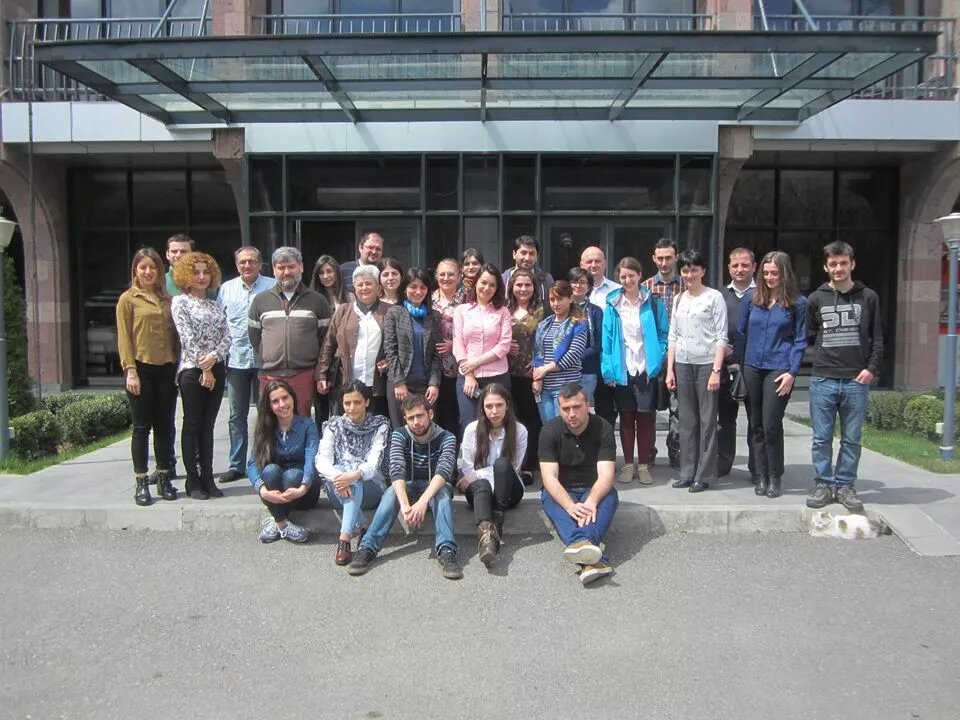
Strategies for Armenian-Georgian Cooperation through Academia and Student Inclusion is the project supported by the South Caucasus Regional Office of the Heinrich Boell Foundation and implemented by Hazarashen Center for Ethnological Studies (Yerevan, Armenia) in cooperation with the Center of Civilization and Cultural Studies (Yerevan, Armenia) and Association of Anthropologists of Georgia (Tbilisi, Georgia).
The project period was March-October 2015 and it was aimed at “bridging the divide” between Georgia and Armenia within the broader context of Georgia’s EU Association Agreement and Armenia’s stated commitment to join the Eurasian Economic Union through the engagement of academia, scholars and students.
Achievement of this goal was planned via joint research under academic supervision of renowned Georgian and Armenian professors working in political science, anthropology and sociology. The outcomes of the research were presented to the public in Yerevan and Tbilisi to enhance discussions in respective expert circles and interested groups as well as to receive feedback on the quality and content. Based on the research the students, in co-authorship with their academic supervisors, prepared articles/policy briefs to be submitted for publication in international academic journals or publication series.
Two most outstanding students - Salome Khvadagiani and Marieta Bazinyan - were offered a one-month internship opportunity in academic and research organizations in Armenia and Georgia.
Docements related to the project:
In 2016, the project team organized workshops, which serves as a working group meeting with the participation of scholars, university professors and participating students. They formed several cross-country research groups covering multiple research areas and introducing common research questions. The students represented a diverse cross-section of academic disciplines: anthropology, social sciences and humanities, political sciences and international relations. Professors, mostly from TSU, IU and YSU, served as research facilitators.
In 2017, the first stage of the project will be followed up by a joint meeting in Tbilisi, in which the students will present their research results, will get feedback from all of the project staff and invited experts and guests. The peer-review of the papers by the students themselves will also be organized. The feedback will help the students refine their papers before including them in a series of planned Round-Table discussions.